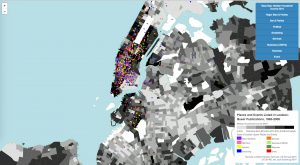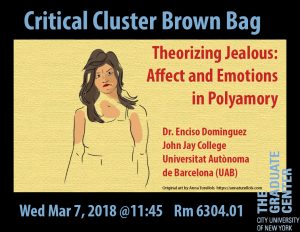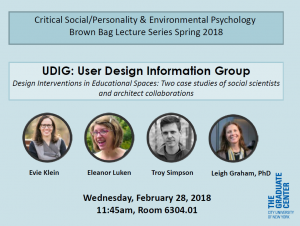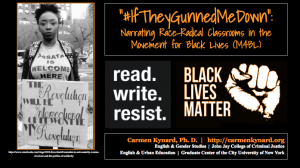Setha Low, professor of Environmental Psychology at the Graduate Center, recently shared her work on activist focusing on implementing public space initiatives at the 9th World Urban Forum in Kuala Lumpur, Malaysia. The following are her colleague, Michael Mehaffy’s opening remarks for their panel on Implementing Public Space Initiatives in the New Urban Agenda:

Professor Setha Low speaking at the 9th World Urban Forum
“I’d like to talk a bit more about the research agenda for public space, and research into practice — and into co-production by the community, as was said earlier. A bit of introduction: The Centre for the Future of Places is a research center at KTH University in Stockholm, and the next stage of a partnership with UN-Habitat and others to develop a public space agenda, and a strategy for implementing public space. Over our original three years we had I think 1500 people from over 700 organizations, 250 cities and 100 countries, representing researchers, government representatives, practitioners and activists.
So now we’re focused on implementation, and on developing an evidence-based approach, and that’s where the research comes in. Part of that is in simply showing the benefits of good-quality, well-connected public space for creating safer and more accessible cities – and there’s plenty of evidence for that. In fact the evidence shows that one of the key issues IS the connectivity of public space systems, AS systems — the network aspects of public space, allowing access for people to come and go, creating safety through “eyes on the street,” creating a pedestrian-friendly environment that is not endangered by the car and by other vehicles, and so on. In this sense, public space is not just a green park or two here and there – if you like it’s really the skeleton of the city – the whole framework through which private spaces are also connected to one another.
But the other thing about the research is the need to understand local contexts and local variations – local laws, cultural differences, climate differences and so on. The importance of co-production of public space, as has been discussed. So what we’re proposing is a model that brings in the more universal research about good quality public space and its characteristics and its benefits, coupled with some “rapid response” local research, conducted by local universities and other partners. And then mapping out the actors, the methods, the tools, the things that work and don’t work, on the ground, within the co-production process, so that we can take those back and share them with other local teams and partners.
So this is another kind of network that we have to recognize, I think – the network of implementers that we need to build, a kind of federation that partners with UN-Habitat and with others to deliver the implementation of the New Urban Agenda and the public space agenda, starting with on-the-ground projects, and building momentum from there.”
Professor Low continued:
“We hope to find a way to research and understand how projects are working, such as whether they are socially just and helpful both locally as well as for the broader city. If we can figure out a “tool” or “indicators” of social justice in public space (based on spaces that are being created) then it gives you a stronger basis for scaling up. Of course the outcome is not just social justice, but caring for others, recognition of difference, environmental improvement, economic stimulus, reinforcing social relations, creating a place for religious rituals and even for safe discussion of the problems being faced. All of this is important, including whether it is social inclusive for all, safe for all, and accessible for all.
From my point of view no one method/tool is going to be perfect and what would be best is something that would capture the diverse peoples, languages, and cultural/political/historical contexts of the public spaces. So I am thinking that we need a method that can be changed, modified and with multiple parts. In places where people do not read or write or are uncomfortable with these tasks, asking them to fill out questionnaires (or internet surveys) simply does not make sense and is disrespectful. Also, in some places face to face interviews might not be possible such as when interviewers are men and the interviewees are women in gender segregated cultures, while in other contexts interviews would be the basis of much of the research. And sometimes, it is a good idea to have an “outsiders” point of view, such as the idea of having students from the local college involved. They may or may not live in the neighborhood, but their perspective can uncover problems that local people do not want or can not talk about.
With all of this being said, what I would like to work on is creating a simplified REAP (rapid ethnographic assessment procedure). REAP is the method that I have used in many parks and plazas in Latin America and the US. But it might be too complicated for local application without some training. A REAP is a qualitative method so it does not include much “counting” but can easily accompany other survey/counting/demographic techniques. Its advantage is that it does not rely on any one method but is made up of a series of very short methodological techniques that are then compared (triangulated) with one another. The strength of such an ethnographic method is that differences will emerge among the methods and these inconsistencies provide the richest data about what is “really” going on. For example, you observe women talking to other women every day in the afternoon, usually while watching their children play nearby. The behavioral maps also reveal that many women congregate on the benches that are close to the children’s playground and occupied between 2-4 pm. But when you interview the women they say that they do not talk to others, but keep mostly to themselves. This contradiction would lead the researcher (local or outsider) to begin to investigate why this contradiction in the data exists. What they might learn is that these women are “expected” not to interact because of cultural differences or something else, so that if you had just interviewed them you would think that they were not interacting with others. I could think of many, many other examples where it is important to use different techniques to understand what is going on.
Simply put the most basic methodological techniques are to undertake:
- behavior and movement maps of the users of the public space (noting activities, who is doing them and where). These are time/place based and should be done over both weekdays and weekends.
- “expert” interviews with those who designed and worked on the public space as well as any “officials” or “funders” who had ideas about what they wanted to accomplish.
- “individual” interviews asking the users what they think of what has been created, what they like and don’t like as well as trying to get to people who are NOT using the space to ask they why they are not there.
- participant observation, that is, taking notes and learning through the experience of being in the space yourself.
- uncovering the history of the public space in its physical and social context, often through oral histories of the users themselves.
I understand that this seems like a lot, and of course it would still be complemented by counts of the number of people using the space, the number of people making a living in the space, the number of children to add to the mapping of activities and users. But I also think that such a method would produce compelling data to present to the stakeholders and policy makers. Take my example about the women–in a community divided by religion/ethnicity/class/race–an ethnographic method would confirm that women really do interact and come together while a questionnaire or interview where they must put down the “right” answer would not.”
Key Questions to Continue to Think About in Regards to Public Space:
- What are the new models (of public space, or urban form)?
- What are the existing barriers?
- What are the tools and strategies to overcome such barriers?
- How can we share, develop, and distribute these tools and strategies?











